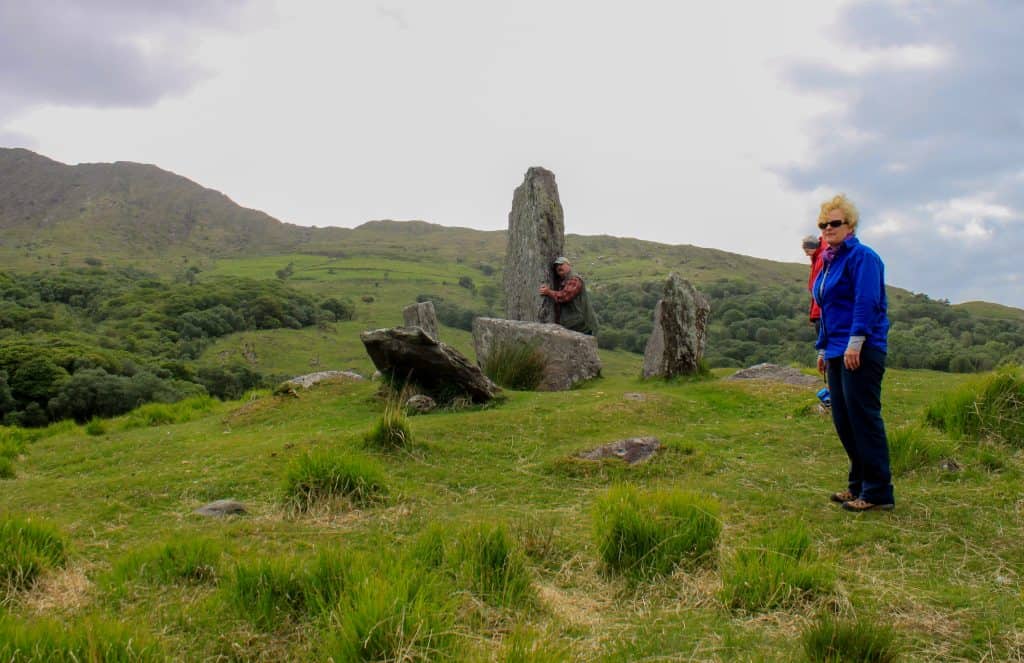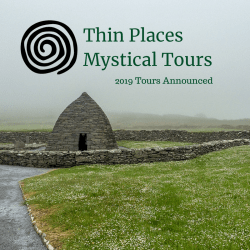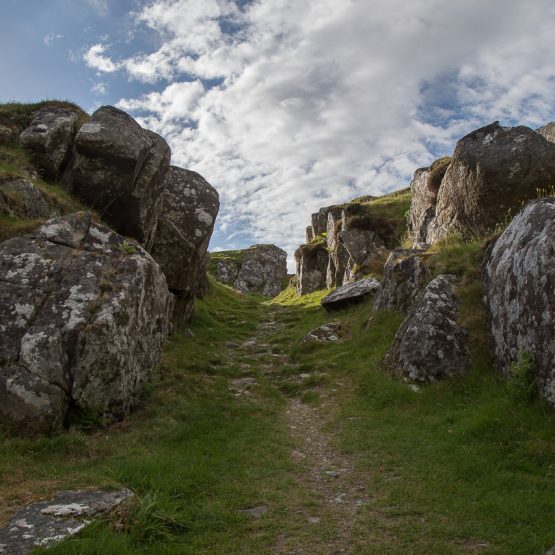What is a Thin Place? by Mindie Burgoyne
What is a Thin Place?
by Mindie Burgoyne
What is a thin place? A thin place is a place of energy. A place where the veil between this world and the eternal world is thin. A thin place is where one can walk in two worlds – the worlds are fused together, knitted loosely where the differences can be discerned or tightly where the two worlds become one.
Thin places aren’t perceived by the five senses. Experiencing them goes beyond those limits.
Fascination with the Otherworld has occupied our human minds since early recordings of history and likely before that. A thin place pulsates with an energy that connects with our own energy – we feel it, but we do not see it. We know there’s another side – another world – another existence. To some, it is heaven, the Kingdom, paradise. To others, it may be hell, an abyss, the unknown. Whatever you perceive the Otherworld to be, a thin place is a place where connection to that world seems effortless, and ephemeral signs of its existence are almost palpable.
Mahatma Gandhi in his Spiritual Message to the World in 1931, speaks of this.
“There is an indefinable, mysterious power that pervades everything. I feel it, though I do not see it. It is this unseen power that makes itself felt and yet defies all proof, because it is so unlike all that I perceive through my senses. It transcends the senses”
Truth abides in thin places; naked, raw, hard to face truth. Yet the comfort, safety, and strength to face that truth also abides there. Thin places captivate our imagination, yet diminish our existence. We become very small, yet we gain connection and become part of something larger than we can perceive. The human spirit is awakened and will grow if the body and mind allow it. Simply put, a thin place is a place where one feels that mysterious power Gandhi refers to. Gandhi believed (and stated later in the same speech), that the mysterious power was God.
Thin places should not be confused with thin moments, those being times when that mysterious power is felt during a particular experience or synchronistic course of events such as the birth of a child, the return of a loved one, reconciliation with an enemy or spiritual awakening. A thin place is simply that – a PLACE where the veil is thin. The place itself calls you, draws you into itself, transports you into the presence of the world beyond this world. The thinness of place moves you into the presence of the mysterious power. There, all things you perceive through your senses are charged, electrified, illuminated with the presence of that power.
Describing the meaning of a thin place is like describing love, fear, the feeling of holding your newborn child, the existence of God. All attempts are feeble and all talk is cheap. Understanding marries experience and full understanding is almost never achieved.
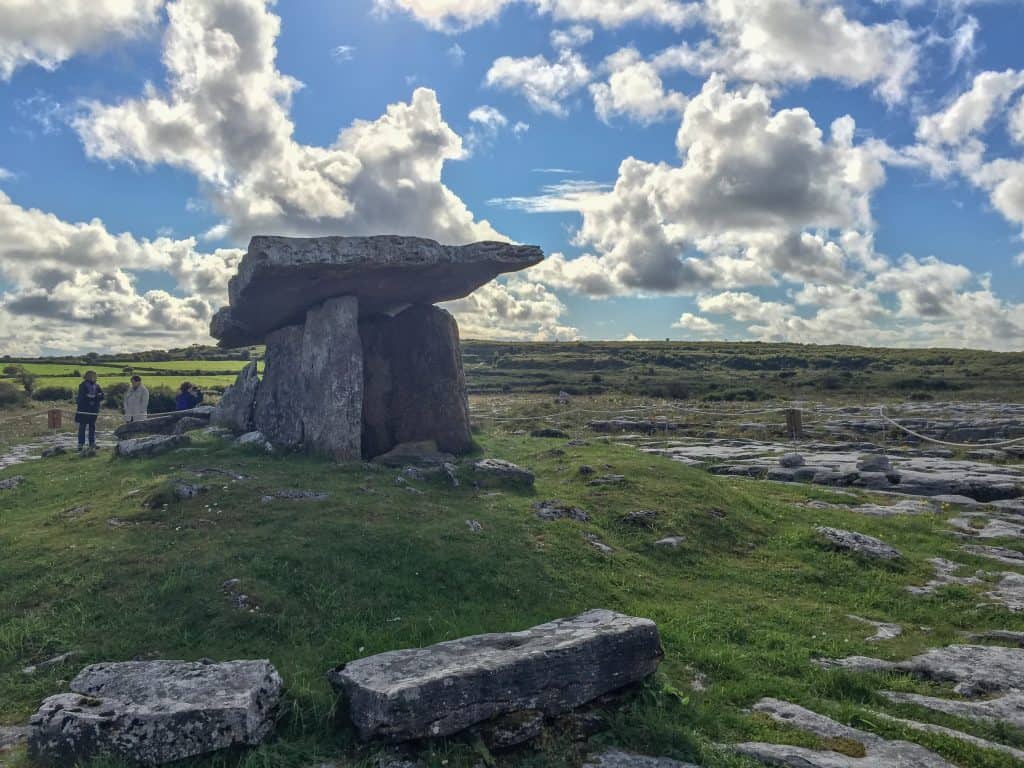
In truth, however, once you’ve been in a thin place and allowed your spirit to absorb that which transcends the senses, all need for definition ceases. Our spirits learn differently than our minds. All through our lives, we walk through these places. Some people notice the thinness. Some do not. Yet the idea of “thin places” is not new. Memorials – made by humans – have been marking thin places for thousands of years. Ancient people, especially in Ireland and Britain were forever marking spaces as sacred and worth remembering, as if to say, “something special happened here.”
This brings us to another characteristic of thin places. They are often marked by human spirits that have gone before, felt the thinness and been changed by it. Thin places not only transcend the senses but transcend the boundaries of time and space. While you’re there, time seems to stand still, and there is a communion with the human spirits that have walked there before and are yet to walk. Thin places are all about connection – with God, with the Otherworld and with all who have lived, are living and will live for generations to come.
The Pre-Christian and Celtic people of Ireland, Scotland, Wales and England had a keen sense for thin places. The landscape is littered with monuments, markings, and ruins that once boldly stated, “This is a thin place. This is holy ground.” The very ground itself seems to call out, “Come here and be transformed.” In a quiet moment, a visitor today can feel the connection with the people whose spirits first marked these spots and all the pilgrims who have visited since. They are vivid reminders that we are all joined inside and outside of time.
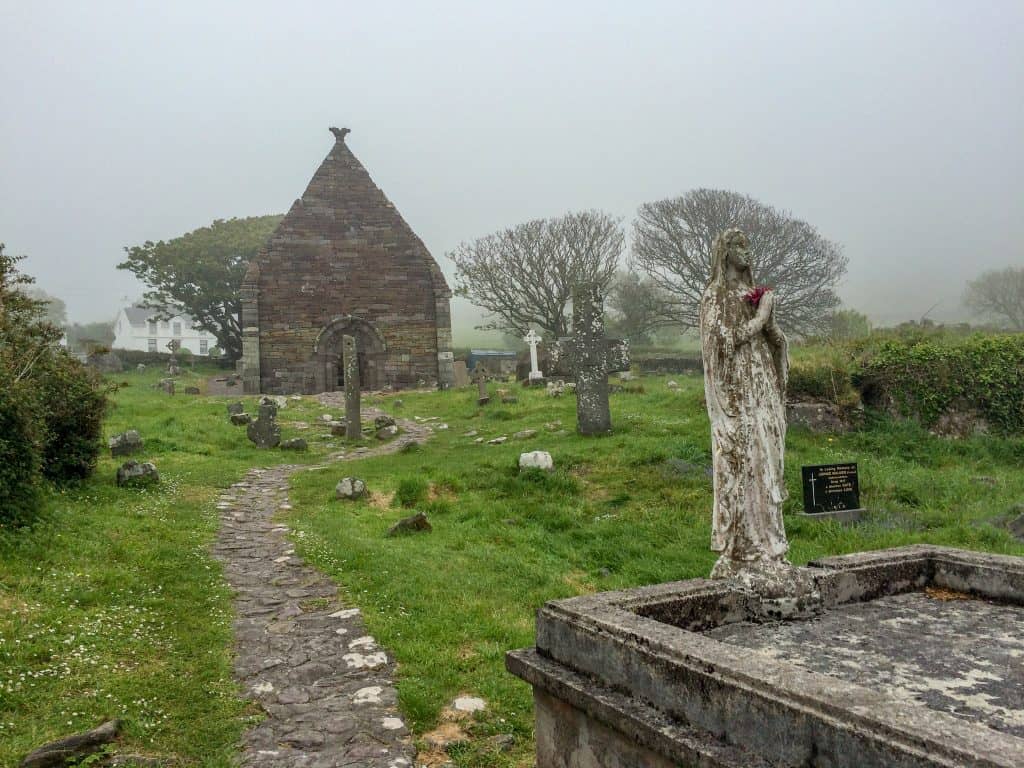
The more you experience thin places, the sharper your senses become. Certainly, they exist everywhere, in every country, but the power is seemingly strong in Ireland and Britain. Even the most non-spiritual person feels something as they move past or enter into ancient sacred sites. My first experience of a thin place was in Ireland, my first trip there many years ago. I was with some friends driving south into Tipperary. We were doing the typical things tourists do in Ireland, frequenting pubs, historical sites, finding places to listen to Irish music, and frequenting more pubs. Not a spiritually focused group, us.
Along the way, the friend who was driving pulled over to look closer at the map. We stopped directly beside the ruins of an old monastery. Curious, I got out of the car. I wandered around the ruins and began to feel strange, almost creepy. I recall there being an old tower with a window. When I looked up at it, I could almost sense the presence of someone there looking out, not looking at me, just looking. Then I began to wonder as I walked, “who lived here before? Who touched these same stones and walked across this field? Who prayed here? What kind of yearnings did they have? Who died here? Why did these monks choose this site, in this place to build this monastery?”
For some reason, the window in the tower continued to draw my attention, and propel my mind into a state of wonder. My friends eventually called out to me asking me how long I was going to keep them waiting. When I returned to the car, they told me I’d been walking amidst the ruins for almost half an hour. I did not sense the passing of time. That little walk in those monastery ruins differed from viewing the Cliffs of Mohr or seeing Yates’ grave. It was more personal, a deeper experience. I have been back to Ireland many times since. I’ve never been able to find that monastery again, though I have searched for it on every return trip.
The encounter with thinness at the monastery was a mere preparation for what was to come the next morning. At 10:00 a.m. we came down the Tipperary Road into Cashel. Seeing the Rock of Cashel emerge from the landscape stirred childhood memories of Emerald City rising up at the end of the yellow brick road. I will never forget that first time I saw Cashel. It was a moment when time stood still, burned in my memory like a trauma or birth. We later climbed the Rock of Cashel and wandered through the Cathedral ruins and cemetery. I knew nothing about the history, who lived there, who ruled from there, what events took place there, but I knew it was a thin place. God was near. My spirit was awake. It was exhilarating and frightening. I cannot say the experience was pleasant. Yet after leaving Cashel, I longed to return.
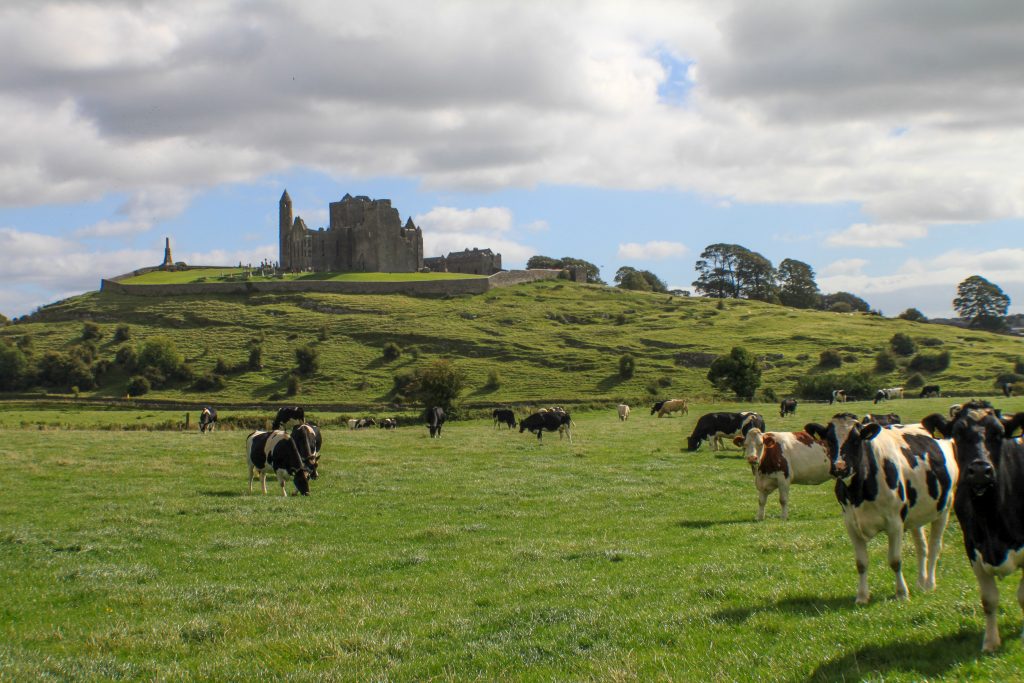
The Rock of Cashel in County Tipperary
I did return to the Rock of Cashel. In fact, I rarely make a trip to Ireland that doesn’t include a visit there. With every visit, Cashel is different, yet the same. Every departure from Cashel is painful and every return natural, as if there is a small presence that welcomes only me. Cashel is a very thin place, yet it is only one of the hundreds that lay in the cradle of Western Europe. Over the last dozen years or so I’ve found others like Cashel, places where I belong more strongly than others – Whitepark Bay in Antrim, Doolough in Connemara, Cashelkeelty Stone Circle in Cork, Kilshannig in Dingle, Boa Island in Fermanagh. All these places have a connection for me.
You can look for thin places, but frequently they will find you. Most of the sites on this website, though they are only a handful of the thin places I have visited and photographed, were recommended to me by others in casual conversation or a short note in a letter. Once you set your spirit on finding them – they will actually find you. There is an intrinsic, mystical spirit woven into the fabric of nature, landscape and sky that calls out to every human heart – if only the heart is willing to listen.
Thin Places are ports in the storm of life, where the pilgrims can move closer to the God they seek, where one leaves that which is familiar and journeys into the Divine Presence. They are stopping places where men and women are given pause to wonder about what lies beyond the mundane rituals, the grief, trials, and boredom of our day-to-day life. They probe to the core of the human heart and open the pathway that leads to satisfying the familiar hunger and yearning common to all people on earth, the hunger to be connected, to be a part of something greater, to be loved, to find peace.
May your spirit soar as you begin your journey into Thin Places.
